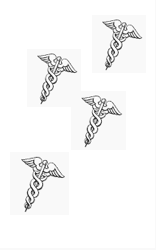Today on Health in 2 Point 00, Jess asks Matthew about AireHealth merging with BreathResearch, adding machine learning-based diagnostics to their respiratory health remote monitoring devices, Sharecare acquiring behavioral health platform MindSciences, the “digital One Medical” telemedicine company PlushCare raising $23 million in a Series B, and PatientPing raising $60 million to expand their e-notifications network to achieve greater interoperability and coordinated care. —Matthew Holt
Health in 2 Point 00, Episode 126 | A triple-episode ft. Bigfoot, Tictrac, Lifestance & many more
Today on Health in 2 Point 00, there’s been so much movement in digital health funding this week that we have a triple-episode. Bigfoot Biomedical raised $55 million in a Series C, Tictrac raised $7.5 million for employee wellness, Lifestance Health raised a whopping $1.2 billion, Maven acquired Bright Parenting, Higi raised $30 million, Bright.md raised $16.7 million, Tia raises $24 million, Doktor.se raising €45 million, Orbita raised $9 million, Curatio’s undisclosed A, Siren raised $11.8 million, 100plus raised $15 million, Ubie raised $18.7 million, Change Healthcare acquired 2 different companies—PDX for $208 million and ERX for $213 million, and special funds by Andreessen Horowitz and Softbank supporting founders of color. —Matthew Holt
THCB Gang, Episode 11

Episode 11 of “The THCB Gang” was live-streamed on Thursday, May 27th and you can see it again below
Joining me were three regulars, patient safety expert Michael Millenson (MLMillenson), writer Kim Bellard (@kimbbellard), health futurist Ian Morrison (@seccurve), and two new guests: digital health investment banker Steven Wardell (@StevenWardell) and MD turned physician leadership coach Maggi Cary (@MargaretCaryMD)! The conversation was heavy on telemedicine and value based care, and their impact on the stock-market, the economy and the health care system–all in a week when we went over 100,000 deaths from COVID-19.
If you’d rather listen, the “audio only” version is preserved as a weekly podcast available on our iTunes & Spotify channels — Matthew Holt
Healthcare Starts to Zoom Along

By KIM BELLARD
A year ago, if you’d used or even heard about Zoom, you were probably in the tech industry. Today, if you haven’t used Zoom, your friends or colleagues must not like you very much. COVID-19 has made most of us homebound most of the time, and video services like Zoom are helping make that more bearable.
And, thankfully, healthcare is finally paying attention.
Zoom was founded in 2011, poking along under the radar for several years, overshadowed by competitors like Skype or WebEx. For the entire month of May 2013 it only had a million meeting participants. Even by December 2019 it could boast “only” 10 million daily users.
Then — boom — COVID-19 hits and people start staying at home. Daily users skyrocketed to 200 million in March and as many as 300 million in April (well, not quite). Daily downloads went from 56,000 in January 2020 to over 2 million in April. Zoom is now used by businesses and families alike, drawn by its simplicity and ease of use.
By all rights, we should be using WebEx for business video calls and Skype for personal ones. Both had been around longer, offered credible services, and still exist. But both were acquired along the way, WebEx by Cisco, and Skype ultimately by Microsoft. As with its acquisition of Nokia, once acquired Microsoft didn’t quite seem to know what to do with it. Each left openings that Zoom plunged through when the pandemic hit.
Continue reading…Deep-Dive on GuideWell’s Covid19 Innovation Collaborative for Health Tech Startups | WTF Health
By JESSICA DaMASSA, WTF HEALTH
“I think that the baseline platform of telehealth adoption created a whole springboard opportunity for the plethora of digital health companies that are out there eager to get into the space and grow their businesses. I think the industry as a whole now is a whole lot more receptive to looking at things like that then they were eight weeks ago.”
Among those in the industry very open to digital health, digital therapeutics, precision medicine, and virtual care solutions in this time of covid19 is GuideWell, which counts Florida Blue and four other healthcare businesses among its subsidiaries.
The national healthcare company is looking to bring together health tech startups around five different kinds of healthcare challenges created by the coronavirus pandemic via its Covid-19 Innovation Collaborative. With the application deadline set for Friday, May 8, we caught up with GuideWell Innovation’s Executive Director, Kirstie McCool, about the details behind the unique model for the Collaborative, its non-dilutive funding awards, and what happens to the startups that are selected to participate. (Hello, other Blues plans!)
If the Collaborative’s areas of focus aren’t enough to clue you in on where the healthcare giant is interested in rounding out its own array of services as a payer, provider, and innovator, we asked Kirstie point-blank to tell us what she thinks is next in terms of supporting the traditional healthcare system with outside-in innovation. Tune in around the 15:20 mark for that part of the conversation, and a final word-to-the-wise for any startup looking to work with a large healthcare enterprise.
Predicting the Future by Listening to the Experts


By STEPHANIE KUKU, MD and HUGH HARVEY, MBBS
The ability to predict in healthcare is the utopia promised by every artificial intelligence for healthcare built, funded and tested in the last decade. Yet very few doctors, technologists, or investors would have imagined they would live to witness a pandemic of the scale we are currently experiencing. We are still getting our heads round the lives lost, the lives of the frontline workers at risk, the disruption and self-isolation, the less fortunate who will suffer the most, the companies in survival mode, and a battered global economy. It is a good time to reflect on what the future of health will look like after we recover. We need to get better at acting on the predictions that truly matter. In a booming health-tech market saturated with promises of predictions and diagnostic insights, it’s a shame we didn’t listen to the scientists who predicted this violent wave of viral disruption.
The future of healthcare investing needs to change
With the first case of the virus last December, everything changed, and there is so much more change to come, in healthcare, technology and in the way we all work. Like with policy and public health, the majority of players on the healthcare stage remain so far removed from the frontline. The perceived ‘market’ rarely truly represents the real one, and true intelligence is lacking the collective intelligence that should prioritise the needs of the healthcare systems and the populations they serve. Our values, motives and how we create the pitch-perfect melting pot of skills, expertise, and mindset needs readjustment. Somewhere between evidence- based decision making and patience; clinical impact aligned with economic impact should be the goal. More focus is needed on validation and less on valuations that are largely built on assumptions and unproven hypotheses. Given the amount of investment that has drowned the healthtech/biotech domains in the last decade, we must praise the advancements that have been made. We must also examine the failures, the wasted resources, and whether technology really is moving healthcare forward at a pace that matches the investment.
Continue reading…Calling Health Tech Companies: GuideWell is Seeking Solutions against COVID-19
SPONSORED POST

By CATALYST @ HEALTH 2.0
GuideWell has launched the COVID-19 Health Innovation Collaborative to identify and support solutions that can immediately increase the scope and scale of resources aimed at reducing the complex stress factors COVID-19 is bringing to bear on the U.S. health system.
There will be five categories of focus under this collaborative, and proposed solutions must directly address at least one of these categories:
- Home-based self-testing solutions for the COVID-19 virus
- Virtual, in-home care solutions for at-risk populations that have limited access to health care services
- Solutions that reduce risk for health care providers in clinical settings, including approaches for increasing protection of clinical staff
- Solutions focused on reducing social isolation due to COVID-19 diagnosis or social distancing
- Solutions for delivering food and urgently needed supplies to at-risk populations and households with COVID-19 exposure or symptoms
The COVID-19 Collaborative’s overarching objective is to source a diverse portfolio of innovative companies that collectively have the potential to respond to the pandemic in the above categories. For each category, a cohort of 3-5 companies will be selected to work together to create a connected, high impact approach to addressing the program category.
Continue reading…GuideWell Launches COVID-19 Health Innovation Collaborative
SPONSORED POST

By CATALYST @ HEALTH 2.0
Due to the rapid escalation of the COVID-19 pandemic, America’s health care system is at immediate risk of reaching a level of over-capacity. While most hospitals have emergency plans for pandemics, the COVID-19 pandemic has quickly highlighted critical gaps in the nation’s health care crisis-management infrastructure.
To assist health care workers on the frontlines, GuideWell has launched the COVID-19 Health Innovation Collaborative. The initiative seeks to connect diverse innovative health technology companies across the U.S., in response to the coronavirus. This Collaborative is focused on addressing critical risk areas facing health care professionals and staff, homebound COVID-19 patients/families, and the larger social issues arising from the social distancing mandates across the nation.
Continue reading…Health in 2 Point 00, Episode 115 | Olive, Bright.md and AristaMD
Today on Health in 2 Point 00, we have a no-nonsense April 1st episode—with deals this time! On Episode 115, Jess asks me about Olive raising $51 million for its AI-enabled revenue cycle management solution, Bright.md raising an $8 million Series C for its asynchronous telemedicine platform, and AristaMD raising $18 million for a different sort of telemedicine, eConsults, which allow primary care physicians to consult with specialists virtually. —Matthew Holt
The New Scarlet Letter

By KIM BELLARD
This piece is part of the series “The Health Data Goldilocks Dilemma: Sharing? Privacy? Both?” which explores whether it’s possible to advance interoperability while maintaining privacy. Check out other pieces in the series here.
If you live in one of the jurisdictions that have imposed stay-at-home requirements, you’re probably making your essential excursions — grocery store, pharmacy, even walks — with a wary eye towards anyone you come across. Do they have COVID-19? Have they been in contact with anyone who has? Are they keeping at least the recommended six feet away from you? In short, who is putting you at risk?
Well, of course, this being the 21st century, we’re turning to our smartphones to help us try to answer these questions. What this may lead to remains to be seen.
We long ago seemed to shrug off the fact that our smartphones and our apps know where we are and where we have been. No one should be surprised that location is of importance to tracking the spread of COVID-19. No one should be surprised that it is already being used. We may end up being surprised at how it will be used.
Continue reading…








